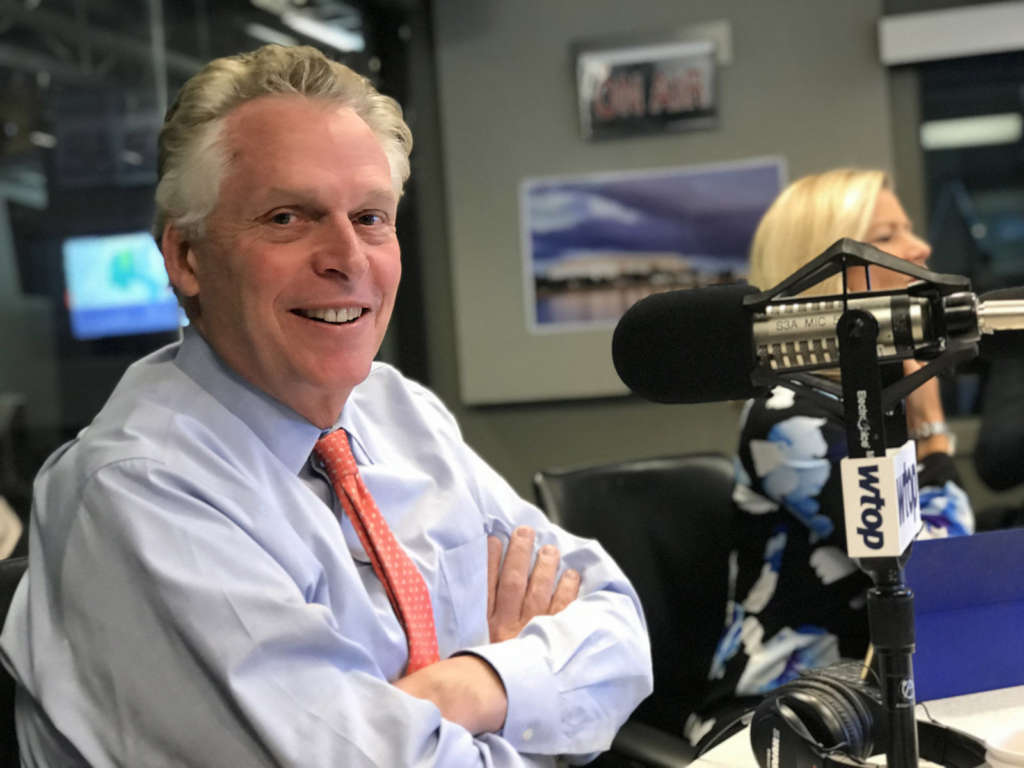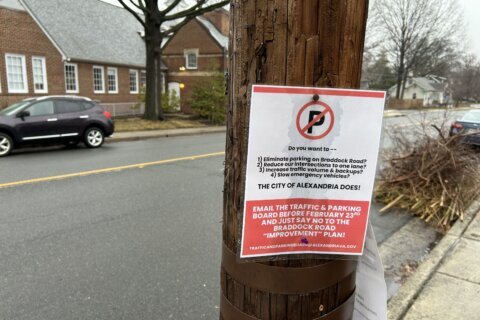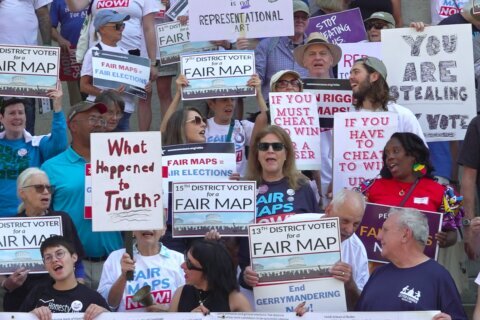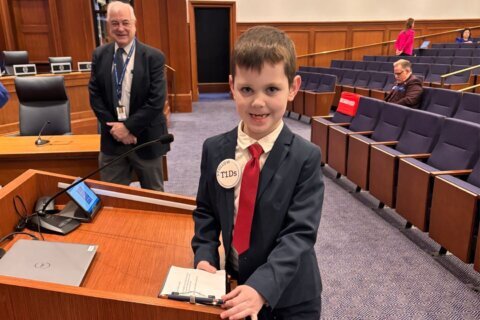
As the two-year anniversary of the deadly “Unite the Right” rally in Charlottesville, Virginia, approaches, former Gov. Terry McAuliffe is urging Virginians to discuss and act on racism and inequality.
McAuliffe, who was Virginia’s governor at the time of the rally, spoke with WTOP about his new book, “Beyond Charlottesville: Taking a Stand Against White Nationalism.”
The book re-examines the decisions made by everyone behind the scenes on Aug. 12, 2017 — when the nation watched a normally quiet college town descend into racist violence, chaos and, ultimately, tragedy.
“A broader issue for us is how did we get here as Americans?” McAuliffe told WTOP’s Mark Lewis and Debra Feinstein. “They used to wear hoods. They used to do it at night. They don’t wear hoods anymore, and they do it in broad daylight. And they think it’s comfortable to do these types of things and it’s acceptable behavior. It isn’t.”
The book opens with McAuliffe’s phone call with President Donald Trump after the rally. According to the former governor, he pleaded with Trump to denounce the white nationalists.
In a now infamous speech, Trump said there were “very fine people on both sides,” inciting criticism that he was refusing to condemn white supremacy.
“I was there. There were not good people on the neo-Nazi side. There were not good people on the white nationalist, white supremacy side,” McAuliffe said.

The violence peaked when a white supremacist drove his car into a group of counterprotesters, injuring dozens and killing 32-year-old Heather Heyer.
James Alex Fields Jr., the driver of that car, was convicted of federal hate crimes and sentenced to life in prison without the possibility of parole.
Despite the tragedy, McAuliffe said the rally served as a reminder that racism is alive and well.
“As bad as it was, it did remind everybody that racism is here today — it has never gone away,” McAuliffe said.
The presence of racism cannot be removed from the U.S. until societal inequalities faced by black Americans are fixed, McAuliffe told WTOP. Inequality in education, housing, criminal justice and health care are issues that need to be tackled, and McAuliffe said he wants Virginia to be a leader on that front.
“I think what Charlottesville did was to open that up and say, ‘Enough of these reconciliation commissions, a bunch of white people talking to each other, making themselves feel good. It is time to do something,'” McAuliffe said.
Solving structural inequality is not only how Virginia can move forward from the “Unite the Right” rally, McAuliffe added. It’s also how current Gov. Ralph Northam and Attorney General Mark Herring can move forward after scandals where both admitted to wearing blackface in the past.
“This, as horrible as it was, does present an opportunity … for [Northam] now to lead. Virginia ought to be a beacon, and that’s what he needs to do going forward,” McAuliffe said.

In addition to existing structural inequalities, McAuliffe said Trump’s rhetoric also paved the way for the “Unite the Right” rally.
“Donald Trump in his rhetoric — and what he’s done recently — has made people feel that it is OK to go out and spew their hatred,” McAuliffe said, bringing up Trump’s recent racist tweets telling four Congresswomen of color, three of whom were born in the U.S., to go home.
McAuliffe also laid some of the responsibility of the rally on the city of Charlottesville and the ACLU. According to McAuliffe, city officials tried to move the rally from Emancipation Park, where protesters wanted to protest the removal of a Confederate statue, to McIntire Park, where it would be easier for law enforcement to keep protesters and counterprotesters separated.
The ACLU sued and a judge ruled that the rally should be allowed to continue in Emancipation Park.
“Shame on the ACLU and shame on that judge. Because what happened — they were all in that park, it was volatile, they were armed, and it was impossible to keep the two sides [separated],” McAuliffe said.
Since the rally and the nationwide reckoning for Confederate statues it brought, McAuliffe said Virginia has not done enough to take down its own statues.
McAuliffe said that Virginia was the birthplace of the American Revolution, but that there are only a couple of statues of American revolutionaries. The same lack of Virginia war hero statues applies to World War I and World War II, he said.
When it comes to Confederate statues, McAuliffe said Virginia has 358 — and that many were built during the Jim Crow era, not to commemorate history but to insult the African American community.
“Jim Crow had nothing to do with the Civil War,” McAuliffe said. “It was all about an affront to the African American community, to show white supremacy in the Old South. And we’ve just got to deal with that.”







